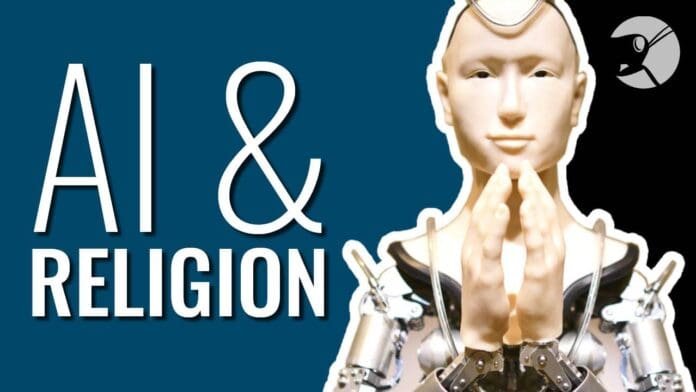People tend to separate science and faith into two orbs that rarely interact. But when AI becomes mainstream, it will change how we interact with spirituality and religion.
First, let’s take an outlook on the current situation. Papyrus and palm leaves were the primary mediums for documenting ancient religious texts. However, two main obstacles make it difficult for modern scholars to access these materials.
To start, many of the surviving ancient texts are in very fragile fragmentary form, and any one of those could fall apart at any moment. Second, even though many texts have been digitized, most people still need to discover the language used to create them. That is making them inaccessible.

AI is radically changing this landscape to facilitate effortless access to them. An influential case study from 2023 demonstrated how researchers at the University of Kentucky utilized artificial intelligence to decode carbonized papyrus destroyed in the AD79 eruption of Mount Vesuvius.
Researchers examined the papyrus using three-dimensional X-ray pictures. They programmed AI to decode the scrolls ‘written letters’ using the minute structural changes the ancient ink left on the papyrus on the scrolls.
The AI successfully translated the ancient Greek word for “purple” that was scribed on the scroll. The Sanskrit language and the Grantha script are two examples of ancient Indian subcontinental texts that are mainly incomprehensible to modern readers and scholars.
Once again, AI systems use language translation and text prediction to predict missing characters in old notes. Some new businesses are developing AI-Gurus (artificial intelligence tutors) by training tiny language models on Sanskrit texts. Preserving and restoring faded cave paintings is another potential use of AI.
Problem with misinformation
Problems arise in using AI, just as when using any other technology. Misinformation and misrepresentation are likely the most prominent concerning matters of faith. This occurred last year when a fake picture of the pope went viral. At the time, the main objective was to have fun.
Creating deepfake images and voice cloning through AI is as cheap as £10 using existing online tools like Eleven Labs and D-ID). It can lead us to more concerning cases shortly. Picture radical groups exploit this technology to fabricate propaganda videos featuring misquotes or distorted representations of religious figures and symbols.
In a similar vein, language models fed extremist ideology can generate massive amounts of hate speech directed at specific religious groups, escalating existing tensions in the community and perhaps leading to violent acts.
Looking ahead to the future of AI and religion
Now, let’s look into the future of AI and how it relates to religion. The Hindu faith will serve as an example of the vision for the future for the next half-century.
A fundamental principle in Hinduism is purushartha, which lays out the four goals of human existence:
- Dharma, or moral and ethical values
- Artha, or material and economic success
- Kama, or pleasure and psychological fulfillment
- Moksha, or spiritual and self-actualization
AI will join humans as equals in every enterprise, including decision-making, within fifty to one hundred years. Training algorithms and AI language models on truthful and morally righteous data is essential for upholding dharma in the world.
Incorporating this into the regulatory frameworks being developed for AI is necessary to ensure this. As we enter a world of plenty with multiple technological convergences, the advancement of artificial intelligence will expedite humanity’s attainment of artha, or economic prosperity.
Forms of versatile primary income may become the standard worldwide in response to the growing demand for policies to address the issue of social inequality. Because of this, people will have more time to pursue interests outside of their day jobs. The primary benefit would be the additional time for enjoyment or kama activities.
We may even witness a quality time of faith-related and spiritual endeavors (moksha activities) if we had more leisure time. That would be a fascinating impact of the increasing influence of AI on society.





